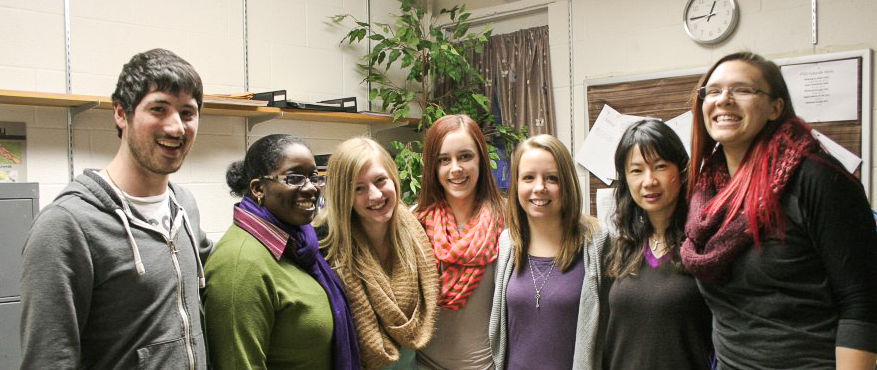Oakland psychology students apply knowledge in real world
Associate professor of psychology Kanako Taku has provided Oakland psychology students with the opportunity to apply their in-class knowledge to the real world.
This knowledge is directly applied to the research of Posttraumatic Growth (PTG) or, according to posttraumaticgrowth.com, “the possibility of personal growth within the context of…[a] distressing and traumatic event.”
Taku has studied and researched PTG for 14 years and how people “change psychologically, cognitively, socially, and spiritually after traumatic events,”as stated by Oakland’s communication and marketing department.
The PTG lab at Oakland has been examining local high school students for the past four years and presented its findings in publications and conferences all over the world, including the 123rd Annual American Psychological Association Convention in August. Lab members and Taku were present at the convention, which took place in Toronto.
The lab studies “whether growth can be experienced not only after being hurt but also after inflicting harm on others in youth populations,” according to Taku’s website.
According to posttraumaticgrowth.com, PTG is measured by a Posttraumatic Growth Inventory (PTGI) and five subscale scores within that inventory. These subscales include areas such as relating to others, personal strength, and spiritual change.
Senior member in the PTG lab Andrea Walenski says they will “travel to local high schools and collect data…code the data, and analyze the data to present at local and international conferences and publish manuscripts in local and peer reviewed journals.”
“Our research is being shared with other professionals around the world, the papers we write are being read, and our voices are being heard,”Walenski said. “In the future I think our findings can increase knowledge of PTG and maybe one day create a beneficial intervention process for children and adults to help them grow after stress.”
Students interested in becoming lab members had to undergo an interviewing process and submit a resume and letter of interest. The personalized feel to the lab was carried through in the interview process by making sure that hopeful lab members agreed with and would follow the lab goals.
“We as students are lucky to be working with such wonderful faculty willing to not only teach but train the next generation of psychologists,”Walenski summed up.
For those looking to learn more about the next generation of psychologists and Taku’s research, please check out her website: kanakotaku.wordpress.com.








